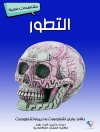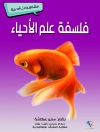Human illnesses can be understood as damage to those adaptations that we took on at various stages in our evolution from pre-life molecules to modern Homo sapiens. Preventing these illnesses entails avoiding what causes the damage — which too frequently are the everyday hazards of twenty-first-century life, as the chart below shows:
Level of Evolution / Cause of adaptive failure / resulting disease or problem
Pre-life / Environmental poisons / Certain birth defects
Single cell (bacteria and amoeba-like) / Viral infection / Colds/flu/HIV
Morula (sponge-like) / Cellular stress / Cancer
Chordate / Physical stress / Back pain
Fish / Excess dietary salt / Hypertension/heart disease
Amphibian / Tobacco smoke / Lung cancer/emphysema
Lower primate / Excess dietary sugar / Diabetes mellitus
Higher primate / Vitamin C deficiency / Scurvy
Ape / Excess dietary protein / Gout
Homo sapiens / Reduced dietary variety / Nutritionaldiseases/food allergies
قائمة المحتويات
List of Tables.
Acknowledgments.
Introduction.
1. Achieving Adaptive Normality, Your Evolutionary Birthright.
2. How Our Health Evolved.
3. An Evolutionary Child s Birthright:Perinatal and Pediatric
Diseases.
4. The Virus War.
5. Cellular Stress: A General Model for Cancer.
6. Breast Cancer, Prostate Diseases, and Cancersof the Reproductive
System.
7. Heart Disease and High Blood Pressure:A Story of Fish and
Chips.
8. Why We Smoke.
9. Diabetes Mellitus and the Thrifty Genotype .
10. Gout, Liver Enzymes, and Global Climate Change.
11. Back Pain, Bad Knees, and Flatfeet.
12. Gut Diseases.
13. The Evolution of Psychiatric Disorders.
14. Uncivilized Solutions: Reestablishing Adaptive Normality in Your
Life.
Notes.
Index.
عن المؤلف
NOEL BOAZ, Ph.D., Biological Anthropologist, is the founder and Director of the International Institute for Human Evolutionary Research and Professor of Anatomy at Ross University School of Medicine. He is the author of more than fifty scientific papers, the leading textbook in biological anthropology, and two popular science books, Quarry and Eco Homo.












